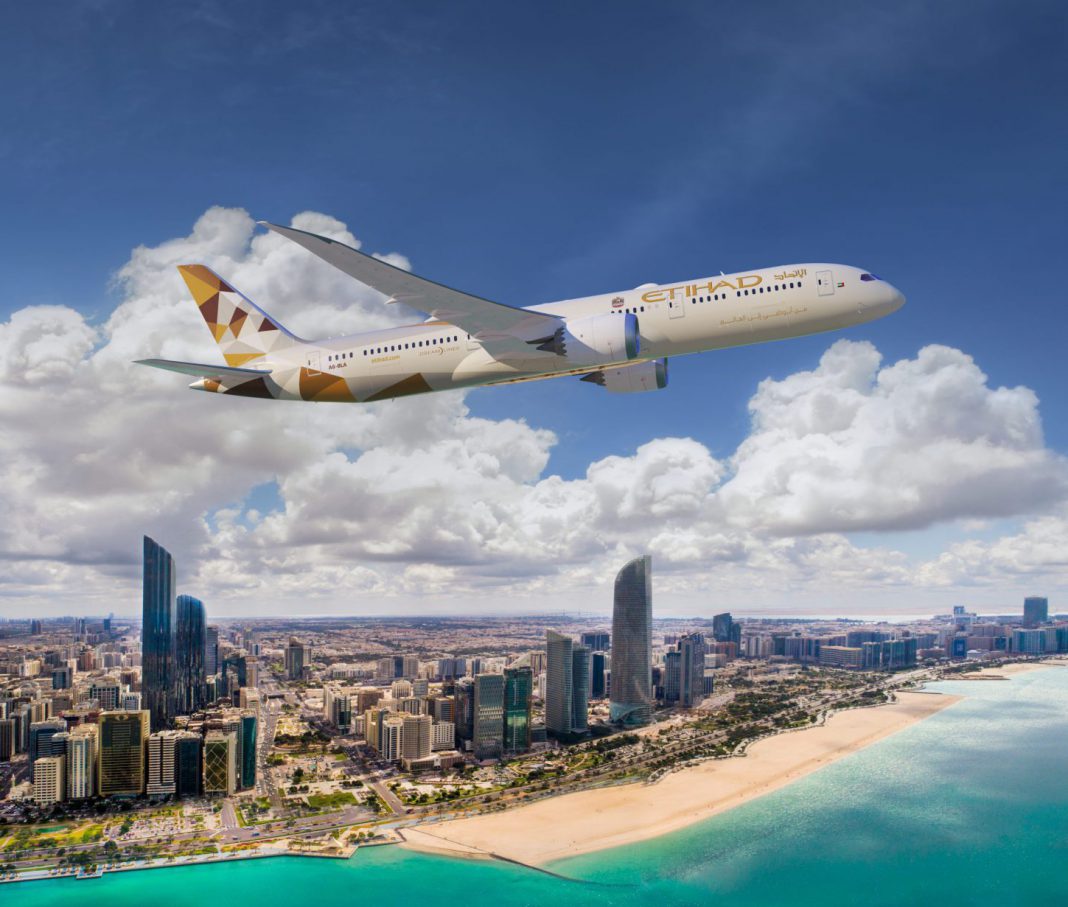Etihad Airways has reported a promising recovery across its business in the first half despite a slower than expected return to global air travel. The airline announced its operating and financial results for the first half of 2021, that saw the airline carry one million passengers during the period, with an average seat load factor of 24.9 per cent. This represents an average 10 per cent month-on-month growth in passenger volumes since Etihad restarted passenger operations in July 2020.
Network capacity in the first half of 2021 came in at 16.4 billion ASKs, and has grown steadily since the start of the year, with the airline operating almost 3,500 flights a month to 67 passenger and cargo destinations by the end of June 2021. Since the beginning of 2021, Etihad has launched or restarted operations to 10 destinations including the historic launch of scheduled services to Tel Aviv in April 2021.
As a result of new variants of the coronavirus affecting key travel markets in the Indian Sub-Continent and Europe, passenger revenue came in at $300 million, down 68 per cent year-on-year from $1 billion. However, the dip in passenger revenue was offset by strong performance in cargo operations, with a 44 per cent year-on-year increase in freight carried in H1 2021 (365,500 tonnes) and a 56 per cent year-on-year increase in revenue ($800 million).
Tony Douglas, Group Chief Executive Officer, said: “Every day, Etihad Airways is making up for lost ground. Despite the curveball of the Delta variant disrupting the global recovery in air travel, we have continued to ramp up operations and are today in a much better place than this time in 2020. As soon as destinations are added to the Abu Dhabi green list or UAE travel corridors, we are seeing a three to six-fold jump in bookings in some cases, showing there is a tidal wave of demand waiting to be unleashed. We are ready to welcome more guests on board to experience why Etihad is second to none when it comes to ensuring passenger well being.”
Throughout the first half of 2021, Etihad retained a singular focus on cost control, decreasing operating costs by 27 per cent year-on-year from $1.9 billion to $1.4 billion, supported by reduced capacity and volume-related expenses. Fixed overhead costs saw a significant improvement, reducing by 22 per cent to $300 million, while finance costs reduced by 22 per cent owing to an ongoing balance sheet deleveraging. As a result, the airline managed to rebuild its liquidity position to pre-pandemic levels.
Overall, Etihad recorded a core operating loss of $400 million for H1 2021 (half the loss of $800 million in H1 2020), with EBITDA turning to a positive $100 million from a negative $100 million in the same period of 2020.
Adam Boukadida, Chief Financial Officer, said: “While market demand has been slower to recover than anticipated, our record cargo performance has continued to buoy the business. At the same time, we have continued to strengthen underlying fundamentals to place Etihad in a better position to maximize the value of passenger revenue as our volumes return. Our rock-solid credit rating has remained unwavering throughout the pandemic and was once again reaffirmed at ‘A with a stable outlook’ by Fitch in April 2021, serving as a clear sign of the long-term financial viability of our business. While the pandemic still poses challenges, Etihad is on the path to becoming a sustainable and profitable business.”
Etihad Airways continued to grow its global network throughout the first half of 2021 as destinations were added to the Abu Dhabi green list and bilateral travel corridors were formed with the UAE.
The number of passenger destinations grew by 20 per cent in the first six months of 2021, from 50 to 60, as Etihad Airways continued to rebuild air connectivity to the vibrant capital of Abu Dhabi.
Etihad is currently operating 64 aircraft including five freighters after having taken the decision to indefinitely park part of its fleet as a result of the pandemic. The backbone of the Etihad fleet remains the Boeing 787 Dreamliner, one of the most fuel-efficient aircraft in the world, with 39 B787-9 and B787-10s in the fleet.
Following the normalisation of diplomatic relations with Israel, Etihad Airways launched a twice per week, year-round service to Tel Aviv in April 2021, strengthening the tourism, business and people-to-people ties between the countries.
Ramping up to the 2021 summer season, Etihad Airways launched three new seasonal routes in just over 24 hours at the beginning of July 2021, linking Abu Dhabi to two major holiday hotspots in Greece (Mykonos and Santorini) and the famous Costa del Sol in Spain (Malaga). European operations were further expanded in July 2021 with the introduction of a new service to Vienna, Austria.
Also with the UAE being removed from the UK’s red travel list and added to the amber list, Etihad Airways launched daily flights to London and Manchester. Flights to London will be departing three times daily, and flights to Manchester will be departing once daily.


